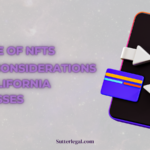Table of Contents
Intro
A common issue in Mergers and acquisitions (M&A) transactions for San Francisco and Silicon Valley employees, contractors, corporations, and lawyers is who is properly classified as a disqualified individual for purposes of 280G of the Internal Revenue Code.
This article specifically addresses who is properly considered an officer and thus disqualified individual for purposes of 280G.
280G
280G of the Internal Revenue Code governs taxes on parachute payments in M&A transactions.
If Section 280G is triggered, the employee or independent contractor receiving compensation subject to Section 280G is responsible for paying a nondeductible 20% excise tax on any “excess parachute payments,” and the employer corporation making such payments to the employee or independent contractor is disallowed from claiming a tax deduction for the excess parachute payments.
Parachute payment
“Parachute payment” is defined under Section 280G and generally means any compensatory payment that:
- is made to a “disqualified individual”.
- is contingent on a change in the “ownership” or “effective control” of an entity classified as a corporation for federal tax purposes or in the ownership of a “substantial portion” of the assets of such corporation.
- has an aggregate present value that equals or exceeds three times the individual’s “base amount.”
Individuals
Thus, section 280G only applies to “disqualified individuals.” Generally, disqualified individuals are employees or independent contractors who, during the 12-month period prior to and ending on the closing date of the acquisition, have been officers of the corporation, shareholders owning more than 1% of the outstanding shares of the corporation’s stock, or highly compensated individuals of the corporation, as well as members of the corporation’s board of directors who fall under one or more of these categories.
Officer of 280G
But who is an officer and therefore a qualified individual for purposes of 280G? Whether an individual is an officer with respect to a corporation is determined on the basis of all the facts and circumstances in the particular case; such as the source of the individual’s authority, the term for which the individual is elected or appointed, and the nature and extent of the individual’s duties.
Any individual who has the title of officer is presumed to be an officer unless the facts and circumstances demonstrate that the individual does not have the authority of an officer.
However, an individual who does not have the title of officer may nevertheless be considered an officer if the facts and circumstances demonstrate that the individual has the authority of an officer.
Conclusion
Generally, the term officer means an administrative executive in regular and continued service. The term officer implies continuity of service and excludes those employed for a special and single transaction. Treasury Regulations limit the number of employees of the corporation and its controlled group that can be treated as disqualified individuals solely by reason of being an “officer” to the lesser of (i) 50 employees; or (ii) the greater of 3 employees or 10% of employees of the controlled group, rounded up to the nearest integer.
If you are an individual or corporation seeking clarity as to an employee or contractor’s classification as an officer and thus a disqualified individual, call the experienced Attorneys at Sutter Law today.






